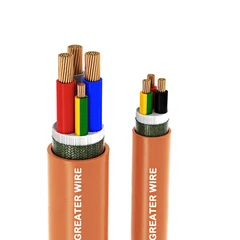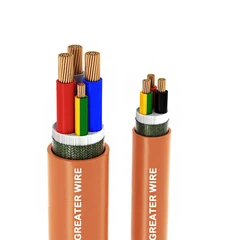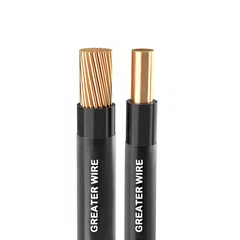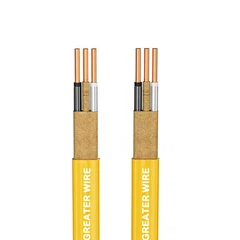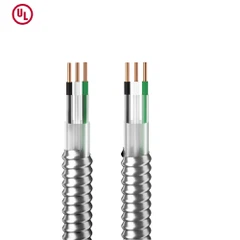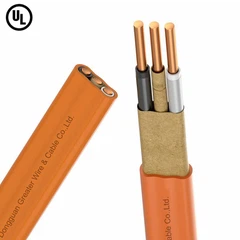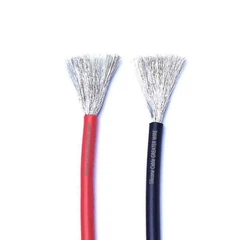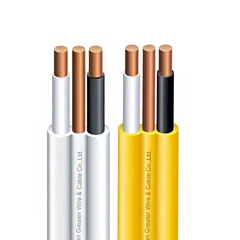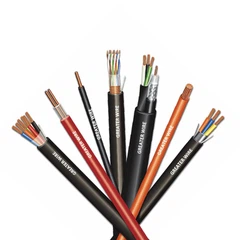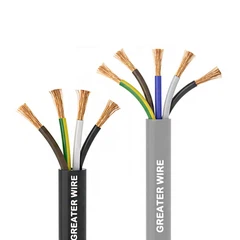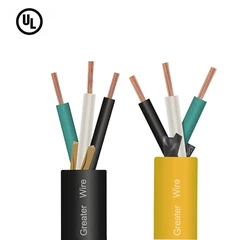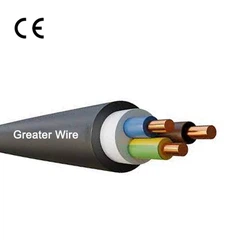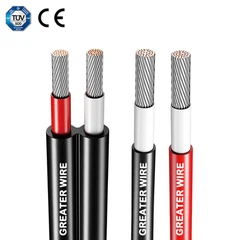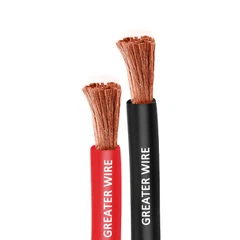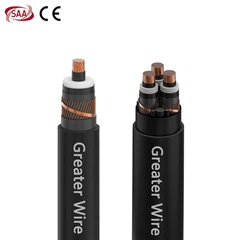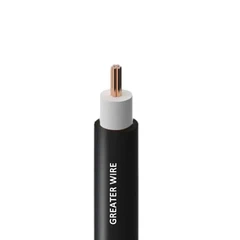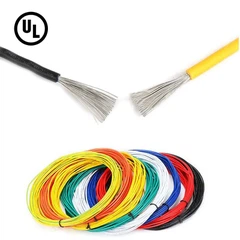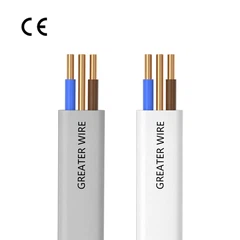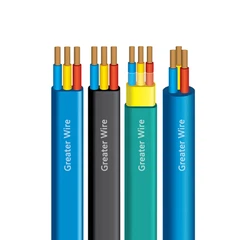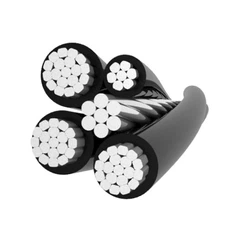In the fields of industry, construction, and electronic equipment, the type and selection of wires are crucial. Different application environments place different requirements on the conductivity, durability, and safety of wires.
MTW (Machine Tool Wire) and AWM (Appliance Wiring Material) are two common but easily confused types of wires. They differ significantly in purpose, construction, and certification standards, and understanding these differences can help you make the right choice in different scenarios. Suppose you are looking for quality wire and cable solutions. In that case, greater wire manufacturer has more than 30 years of wire and cable expertise and state-of-the-art manufacturing technology to provide you with reliable electric wire. This article will deeply analyze the specific differences between MTW and AWM to help you choose the most appropriate wire type according to your actual needs.
1. MTW Wire and AWM Wire Definitions and Standards
1.1 What Is MTW Wire?
MTW Wire (Machine Tool Wire) is a wire designed for internal wiring of industrial machinery and equipment, with excellent flexibility, durability and electrical performance. It is commonly used for electrical connections of industrial control panels, machine tool equipment and automation systems. Conductor (Conductor) uses stranded bare copper or tinned copper conductors, which meet ASTM B-3, B-8 standards to ensure excellent conductivity and corrosion resistance. Insulation (Insulation) uses high-quality PVC (polyvinyl chloride) or XLPE (cross-linked polyethylene) insulation materials, which have good heat resistance and abrasion resistance. It is highly flexible and easy to bend and wire in a small space. The rated voltage is usually 600V, and the temperature level is 90°C in a dry environment, 60°C in a humid environment, and 75°C in an oily environment.
1.2 What Is AWM Wire?
AWM Wire (Appliance Wiring Material) is a wire used for internal wiring of home appliances and industrial equipment. It has good conductivity, heat resistance, and chemical resistance. AWM cable has become a common wiring solution in electronic equipment, home appliances, and industrial automation systems due to its wide range of application scenarios and flexible structure.
The conductor of AWM Wire is usually made of bare copper, tinned copper or silver-plated copper to ensure excellent conductivity and corrosion resistance. According to different application requirements, the conductor can be a single-strand or twisted structure to meet the requirements of flexibility or tensile strength. The insulation layer uses PVC, Teflon, or Silicone high-performance materials. PVC (polyvinyl chloride) has good electrical insulation and abrasion resistance. Teflon (polytetrafluoroethylene) has excellent high-temperature resistance and chemical corrosion resistance. Silicone provides excellent flexibility and heat resistance and is suitable for extreme temperature environments. Some AWM cables also include a shielding layer (such as aluminum foil or tinned copper shielding) to reduce electromagnetic interference (EMI) and radio frequency interference (RFI) to ensure the stability and accuracy of signal transmission.
AWM Wire has an electrical rating of 300V – 600V (some models can reach 1000V), an operating temperature range of -40°C to +200°C, is flame retardant in accordance with VW-1, FT1 standards, and is oil-resistant, chemical-resistant, and UV-resistant.
2. Key Differences Between MTW Wire and AWM Wire
|
Feature |
MTW Wire |
AWM Wire |
|
Application |
Industrial machinery, machine tools |
Household appliances, electronic devices |
|
Flexibility |
High flexibility for movement and vibration resistance |
Moderate flexibility, not designed for high movement |
|
Insulation |
PVC, XLPE (heat and moisture resistant) |
PVC, Teflon, Silicone |
|
Standards |
UL 1063, NFPA 79 |
UL 758 |
|
Voltage Rating |
Typically up to 600V |
Varies based on type (300V, 600V, or higher) |
|
Temperature Rating |
90°C (wet/dry) |
Varies depending on insulation material (up to 200°C) |
3. MTW Wire and AWM Wire Different Applications
MTW Wire is widely used in industrial environments that require high flexibility, durability, and stable electrical performance. Due to its superior anti-interference ability, oil resistance, and heat resistance, MTW cable has become an ideal wiring choice in industrial automation, machine tools, and control systems. It is mainly used in industrial automation systems, control panels and electrical cabinets, CNC machine tools and automation equipment, electrical equipment and equipment connections, transportation,n and automotive industries, and other types of industrial equipment, control systems, and machine tools, and can maintain excellent performance in harsh environments.
AWM Wire is widely used in various household appliances, industrial equipment, and electronic equipment due to its excellent electrical properties, heat resistance, and flexibility. Its diverse material selection and high-temperature tolerance make it an ideal wiring solution in many fields. It is mainly used in household appliances, industrial control systems, electronic equipment, medical equipment, etc. AWM Wire has excellent electrical performance, high-temperature resistance, and anti-interference ability, providing stable and safe power and signal transmission for these devices.
4. MTW wire and AWM wire certification and compliance
MTW Wire (Machine Tool Wire) must comply with multiple industry standards and international certifications during design and manufacturing. The main certification and compliance requirements for MTW Wire are UL 1063, NFPA 79, and CSA certification
AWM Wire (Appliance Wiring Material) must comply with multiple international standards and industry certifications during design and manufacturing to ensure its safety, reliability, and performance in home appliances, industrial equipment, and electronic products. AWM Wire complies with UL 758, a safety standard set by Underwriters Laboratories for home appliance wiring materials. CSA (Canadian Standards Association) certification.
5. How to Choose Between MTW wire and AWM wire?
When choosing between MTW Wire and AWM Wire, the key is to understand their application environments and performance requirements. MTW Wire is suitable for industrial environments that need to deal with high vibration, exposure to oil, or frequent maintenance. Its flexibility and durability make it excellent in industrial automation, machine tools, and control systems, especially for equipment that operates in high-frequency vibration and complex environments. The oil resistance and anti-friction ability of MTW wire make it very suitable for working environments that handle oil or chemicals.
AWM Wire is more suitable for home appliance projects and fixed installation applications, especially in space-constrained and cost-sensitive occasions. AWM Wire is designed for internal wiring of home appliances, electrical equipment, and electronic products, and can provide stable electrical performance in mild environments. It's heat resistance and flexibility make it superior in home appliance equipment, especially in equipment such as microwave ovens, refrigerators, and air conditioners. Due to its high cost-effectiveness, AWM Wire is an ideal choice for many home appliance projects and low-power devices.

6. Common Misconceptions about MTW Wire and AWM Wire
6.1 AWM wire cannot be used in industrial scenarios
In fact, some AWM Wires designed for high temperature or chemical resistance can actually be used in light industrial applications. However, when using it in an industrial environment, you must ensure that it meets the appropriate certification standards to ensure its reliability in harsh environments.
6.2 MTW wire and AWM wire are interchangeable.
Although these two wires are similar in some characteristics, they are designed and used differently. MTW Wire has a stronger ability to resist physical damage and is suitable for high vibration and harsh industrial environments, while AWM Wire is more flexible and suitable for internal wiring of space-compact, cost-sensitive home appliances or electronic products. If these two cables are mixed, it may cause unstable performance and even safety hazards. When choosing, it is necessary to clearly distinguish their applicable scenarios.
Still unsure which wire fits your project? Greater Wire Manufacturer has more than 30 years of manufacturing experience, and its products have passed UL, SAA, TUV, and other international certifications. If you have any questions about wires or other questions, please consult us!

